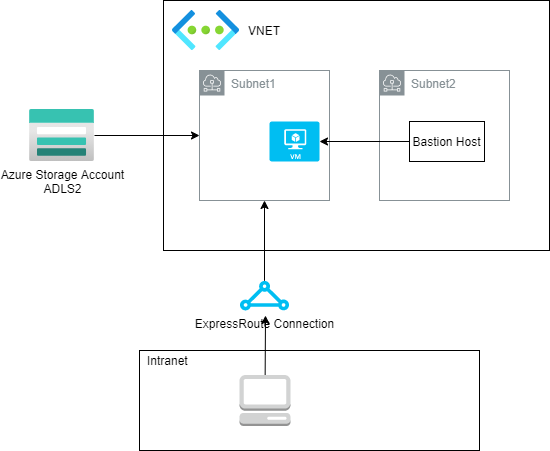The storage account DNS name like 'storageaccount.file.core.windows.net' resolves to the private IP address of the private endpoint you set while creating the storage account. In-order to connect the storage account, the client such as storage explorer should resolve the private end point.
From an azure VM, 'storageaccount.file.core.windows.net' will resolve the private end point correctly.
But, when you try to resolve the name from your on-premises connected via Express route, it resolves to the public IP address of the storage account and which is not useful for accessing the storage account.
To ensure that the storage account name resolves to the private endpoint's private IP address, you must change the configuration on your on-premises DNS servers. This can be accomplished in different ways:
- Modifying the hosts file on your clients to make storageaccount.file.core.windows.net resolve to the desired private endpoint's private IP address. This is not recommended for production work loads. However, for a quick test, this will help
- Creating an A record for 'storageaccount.file.core.windows.net' in your on-premises DNS servers.
- Forward the core.windows.net zone from your on-premises DNS servers to your Azure private DNS zone. To learn how to set up DNS forwarding by using PowerShell cmdlets, see Configuring DNS with Azure Files
----------
If the Answer is helpful, please click "Accept Answer" and upvote it

